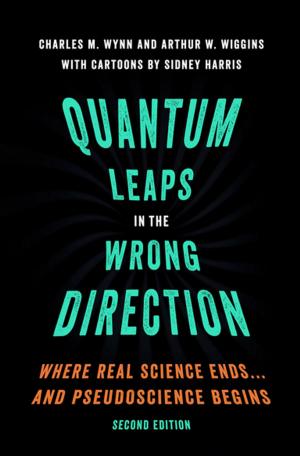| Author: | Joseph Mirsky | ISBN: | 9780970007476 |
| Publisher: | Joseph Mirsky | Publication: | October 6, 2015 |
| Imprint: | Language: | English |
| Author: | Joseph Mirsky |
| ISBN: | 9780970007476 |
| Publisher: | Joseph Mirsky |
| Publication: | October 6, 2015 |
| Imprint: | |
| Language: | English |
I own a jewelry store in New Jersey. I send newsletters to my customers 3 times a year. The newsletters were an instant hit when I started them in 1997. I compiled them along with many articles on topics unsuitable for the newsletters into three editions of Ornamentally Incorrect. By now, I have written so much about just about everything, consumer and middle class issues, food, drink, money, economics, politics, and the lighter side of life, I reorganized everything into a new general interest book, with jewelry articles in one section.
Most pages have 3-5 articles. Some longer articles are full page. There are 243 photos and illustrations and 804 articles, each with a headline-like title, as well as 70 notes at the end of the book in the same format
There are many articles about the past which are eerily resonant today, hence the title. Examples are an 1899 prediction that the Chinese will start to mass produce goods "not for their own use, but for us and at such ruinous prices that the labor market of the world will suffer a terrible blow," (Made in China), virtually identical ads for cure-alls in 1903 and 2012 (Snake Oil). The economy was stupid in 1896, too: "Leak Through Economics" is from Bryan's Cross of Gold speech. That morally corrupt new music is old, shown by a series of quotes about the waltz in 1813, ragtime in 1902, Stravinsky in 1913, swing in 1936, rock and roll in 1957, and Keith Richards dissing hip-hop in 2007 (All Shook Up). The Great Recession got you in a depression? It's happened before. Read about the Panic of 33 in ancient Rome (Oeconomia est, O Asine!). While in Rome, go down to Pompeii and read the Graffiti on the walls: "Chie, I hope your hemorrhoids rub together so much that they hurt worse than when they ever have before!" (The Handwriting on the Wall).
The book goes from A (Attention Winos) to Z (Zen and the Art of Canine Maintenance). Here is a sample of the diverse topics in the book: an elephant who didn't get a peanut because it was paid for with a lead slug flattening the offender with a stream of water (Never Cheat an Elephant), the rise of the Christmas tree and decline of the Christmas stocking (O Weinachtsbaum), counterfeiters who printed money while in prison in 1899 (Passing the Buck), airline barf bags with ads on them (Ad Nauseum), and an article about a 1927 robot who answered the phone and who, when asked his favorite book at a booksellers convention, replied "Is Sex Necessary?" by James Thurber (Is Sex Necessary?). The article is accompanied by a wonderful photo of a woman hugging the protesting robot.
The book is like a newspaper: you don't have to read it sequentially,You can read what interests you. If measuring the speed of light by melting a chocolate bar in your microwave (Hot Chocolate) is too technical, read about selfie toasters on the same page (You're Toast!). If the gold standard is too complicated (In Gold We Trust), skip a few pages and read about marijuana scented coins from Benin (The Smell of Money). it's the perfect bathroom book
There are many spin-off articles. I wrote a long piece about colorful Cockney diamond magnate Barney Barnato who was bought out by DeBeers founder Cecil Rhodes in 1889 (The Largest Check Ever Written). When Barney's nephew attended a dinner at the Savoy in London in 1898, a cancellation left an unlucky 13 guests. Warned that the first to leave would die, he scoffed and left first. Two weeks later he was murdered by a blackmailer. The Savoy then had a three foot wooden black cat named Kaspar sit in on parties of 13. (The Cat Who Came to Dinner.) In 1930, the Savoy Cocktail Book listed a Barney Barnato Cocktail that used a South African apéritif that went "defunct" until revived by a South African winery in 2014. (The Ghost Ingredient is Back!)
I own a jewelry store in New Jersey. I send newsletters to my customers 3 times a year. The newsletters were an instant hit when I started them in 1997. I compiled them along with many articles on topics unsuitable for the newsletters into three editions of Ornamentally Incorrect. By now, I have written so much about just about everything, consumer and middle class issues, food, drink, money, economics, politics, and the lighter side of life, I reorganized everything into a new general interest book, with jewelry articles in one section.
Most pages have 3-5 articles. Some longer articles are full page. There are 243 photos and illustrations and 804 articles, each with a headline-like title, as well as 70 notes at the end of the book in the same format
There are many articles about the past which are eerily resonant today, hence the title. Examples are an 1899 prediction that the Chinese will start to mass produce goods "not for their own use, but for us and at such ruinous prices that the labor market of the world will suffer a terrible blow," (Made in China), virtually identical ads for cure-alls in 1903 and 2012 (Snake Oil). The economy was stupid in 1896, too: "Leak Through Economics" is from Bryan's Cross of Gold speech. That morally corrupt new music is old, shown by a series of quotes about the waltz in 1813, ragtime in 1902, Stravinsky in 1913, swing in 1936, rock and roll in 1957, and Keith Richards dissing hip-hop in 2007 (All Shook Up). The Great Recession got you in a depression? It's happened before. Read about the Panic of 33 in ancient Rome (Oeconomia est, O Asine!). While in Rome, go down to Pompeii and read the Graffiti on the walls: "Chie, I hope your hemorrhoids rub together so much that they hurt worse than when they ever have before!" (The Handwriting on the Wall).
The book goes from A (Attention Winos) to Z (Zen and the Art of Canine Maintenance). Here is a sample of the diverse topics in the book: an elephant who didn't get a peanut because it was paid for with a lead slug flattening the offender with a stream of water (Never Cheat an Elephant), the rise of the Christmas tree and decline of the Christmas stocking (O Weinachtsbaum), counterfeiters who printed money while in prison in 1899 (Passing the Buck), airline barf bags with ads on them (Ad Nauseum), and an article about a 1927 robot who answered the phone and who, when asked his favorite book at a booksellers convention, replied "Is Sex Necessary?" by James Thurber (Is Sex Necessary?). The article is accompanied by a wonderful photo of a woman hugging the protesting robot.
The book is like a newspaper: you don't have to read it sequentially,You can read what interests you. If measuring the speed of light by melting a chocolate bar in your microwave (Hot Chocolate) is too technical, read about selfie toasters on the same page (You're Toast!). If the gold standard is too complicated (In Gold We Trust), skip a few pages and read about marijuana scented coins from Benin (The Smell of Money). it's the perfect bathroom book
There are many spin-off articles. I wrote a long piece about colorful Cockney diamond magnate Barney Barnato who was bought out by DeBeers founder Cecil Rhodes in 1889 (The Largest Check Ever Written). When Barney's nephew attended a dinner at the Savoy in London in 1898, a cancellation left an unlucky 13 guests. Warned that the first to leave would die, he scoffed and left first. Two weeks later he was murdered by a blackmailer. The Savoy then had a three foot wooden black cat named Kaspar sit in on parties of 13. (The Cat Who Came to Dinner.) In 1930, the Savoy Cocktail Book listed a Barney Barnato Cocktail that used a South African apéritif that went "defunct" until revived by a South African winery in 2014. (The Ghost Ingredient is Back!)















